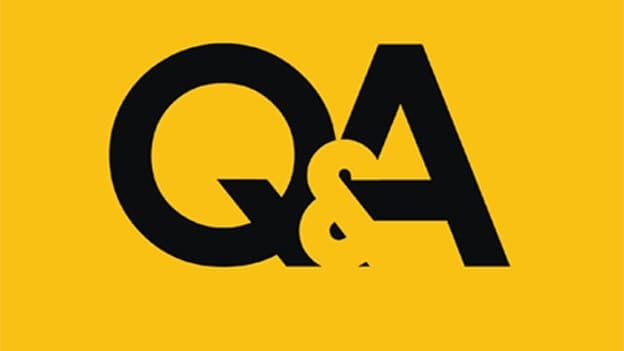Empower each employee to bring their true selves at work: Mellissa Ferrier

The year 2020 brings with it a decade-long journey of cracking the code of gender inclusivity in the workplace. As the offices of the future break geographical boundaries, it is high time that teams not only focus on becoming more diverse but also aim to be inclusive towards people of all walks of life.
While 83 percent of the Fortune 500 companies have protections for gender identity such as transgender or non-binary individuals, about 93 percent of the companies include sexual orientation in their corporate anti-discrimination policy, according to the 2019 Corporate Equality Index. It is commendable that several companies across the globe have taken the step to ensure that workplaces are a safe environment for people of all genders and gender identities, however, fear still inhibits LGBTQ+ employees from bringing their full selves to work. LGBTQ+ employees are more likely to hide or downplay aspects of their true selves, such as changing the way they dress at work or speak and/or hiding important personal relationships because they fear discrimination and ridicule at the workplace.
It is precisely why an inclusive culture is a major determinant of LGBT employees continuing to work with an organization or choose to leave. About 25 percent of the LGBTQ+ employees surveyed by the Human Rights Campaign for their research on A Workplace Divided: Understanding the Climate for LGBTQ Workers Nationwide, said that they continued to stay in a job because of the gender inclusive work culture and a safe environment.
The ‘Hacking Diversity with Inclusive Decision Making’ white paper found that inclusive teams that involve members of different genders, age, and geographies make better business decisions. Sometimes, diversity can increase friction within the team if it is not backed up by a push for inclusivity. However, once teams crack the code of inclusivity, the results get a 60 percent boost. The research also found that diverse teams make better decisions 87 percent of the time.
This is what Mellissa Ferrier, HR Head, Sales, Practice, & Pre-Sales, Cloud & Infrastructure Services, Wipro, and also the LGBTQ+ Global Lead at Wipro believes in. With more than 18 years of experience in managing recruitment, employee engagement, leadership development, employee capability building, onboarding and attrition related projects, Mellissa has been working towards ensuring that the organization remains a safe place where employees of any gender/gender identity, age, ethnicity, educational background, can bring their authentic selves to work.
As we focus on Outlook 2020 this month, Mellissa shares the various facets of the inclusion and diversity equation that are going to be redefined in the upcoming months, especially in the corporate landscape of today.
In your journey as an HR leader, people manager, and now leading the LGBTQ+ diversity and inclusion charter of a conglomerate like Wipro, what prompted and motivated you to choose this path and promote inclusivity in the workplace?
As an openly gay Wiproite, I thought it was important to get involved, and help build a strong ally network and support community for all LGBTQ+ employees. We also wanted Wipro employees to feel that they could bring their authentic selves to the workplace and not have to hide their true identity. It’s exhausting trying to pretend to be something you are not. Everyone, including the organization suffers because of this. I also interacted with many employees who assumed that there were no LGBTQ+ employees in our organization. This motivated me to help raise more awareness about the community. Finally, we wanted to have more proactive and open conversations to help sensitize employees to ensure there is zero discrimination at the workplace, as stated in our code of conduct.
In most organizations, efforts in the area of D&I have more focus on gender diversity even today. How do you think organizations can bring about a mindset shift in 2020?
2020 is going to be the year where we are most likely to see that talent leaders increasingly focus on inclusion rather than promoting diversity for diversity’s sake. Gender inclusion is a positive step forward as it enables organizations to challenge their unconscious biases and realign policies, systems and processes to be more inclusive (e.g. gender-neutral job descriptions, flexible office timings post maternity leave, among others). Once organizations see the benefits of being more inclusive, it gives them greater confidence to expand their charters.
At Wipro, our Inclusion and Diversity (I&D) journey started over a decade ago with gender and people with disabilities, before moving to nationalities and the LGBTQ+ inclusion. We believe in building inclusion as a way of life and going beyond diversity of identity, towards inclusivity for all. Gender diversity is just one of the many kinds of diversity that exist at the workplace. Once organizations acknowledge this, they will be able to promote inclusion for all. This will also pave the way for increased efforts toward LGBTQ+ inclusion and promote a truly inclusive work environment.
As we look ahead into 2020, how has Wipro's LGBTQ+ inclusion journey been so far? In your experience, what are some of the practices/mechanisms that have worked in furthering inclusion of the LGBTQ+ community at the workplace and which practices will you carry forward into 2020?
Our Inclusion philosophy is guided by the Spirit of Wipro – our core values – which expects us to treat each person with respect. There’s a commitment to making inclusion a ‘way of life’ is reinforced by our leadership, including our CEO and Managing Director, who is the Executive Sponsor of the I&D Council. The Council includes the Global I & D Head and Senior Leaders from diverse groups- gender, geographies, and ethnicities. While we have always promoted inclusion for all, we introduced LGBTQ+ as a formal pillar of inclusion in early 2018. With it, came a wave of initiatives that would further strengthen a culture of inclusion at the workplace.
For the LGBTQ+ community at Wipro, our goal is to create a workplace and an environment where they feel safe and welcome, are treated with equal respect and acceptance, and are not subjected to bias. We launched a voluntary self-declaration form where employees can choose to declare their gender identity, sexual orientation, and preferred pronoun. The Wipro Pride employee resource group (ERG) on Yammer (Wipro’s enterprise social network) aims to reinforce the importance of inclusion by creating a space where employees can share relevant information and best practices, meet other LGBTQ+ and ally employees, have discussions, and more. We also introduced inclusive restrooms in our campuses that any individual can use, regardless of gender identity, expression, or physical ability. Every June is celebrated as Pride month by Wiproites across the globe, and these celebrations just keep getting bigger.
This year, during our Pride month celebrations, we collaborated with Periferry, a Chennai-based startup that helps the transgendered community with entrepreneurial and employment opportunities, to set up an experience zone in one of our campuses. The feedback was overwhelming. Individuals who belonged to the LGBTQ+ community were elated that the organization was openly talking about the community, breaking common stereotypes and myths, and helping raise awareness to eliminate unconscious biases. Some were simply curious to learn more. Others who had friends or relatives from the community conveyed that they felt a sense of pride that Wipro was creating a more inclusive workplace for all. Something as simple as just talking about sexual orientation or gender identity can really go a long way in making an individual believe that the organization sees this as a priority.
While we have integrated LGBTQ+ inclusion in our overall inclusion philosophy, we believe that there’s a lot more to be done. We have received overwhelming response from our employees (allies and the LGBTQ+ community alike), and this is what keeps us going.
It is not just about hiring diverse candidates but also about setting up processes, infrastructure, and policies that promote and support inclusivity. What are the various aspects that must be considered to create an ecosystem of inclusion for the LGBTQ+ community?
When we talk about inclusion at the workplace, it is about creating an entire ecosystem that supports and enables employees, irrespective of their identity. While hiring is one visible way of bringing in individuals from various communities and backgrounds, it is also crucial to acknowledge that diversity already exists at the workplace. It is our responsibility to create a safe work environment where all employees are treated with respect. Policies and processes, even the most basic ones, need to be inclusive. The physical infrastructure in the organization must cater to the needs of all employees. Organizations must be ready to modify their systems, taking into consideration the various implications that any system change might have. For example, giving an employee the option to change their name/pronoun in the system would give them a sense of control over their identity at the workplace. Finally, the culture of the organization should be one that encourages employees to be their true and authentic selves at work.
The concept of inclusion at the workplace is evolving and moving beyond just policy changes. How can leaders create an organizational culture where people feel safe and welcome in bringing their true selves to work?
An inclusive workplace respects uniqueness among individuals and nurtures an overall sense of belonging. An organization’s culture is what encourages, or rather allows an individual to be their true self. To begin with, leaders must believe in the cause, and not just look for numbers. Only when they truly believe in it, will they be able to build an inclusive culture within their teams. However, these efforts must go beyond policy changes and initiatives, and percolate through their everyday interactions in order to truly become a part of the organization’s culture.
Any particular challenges and learnings from your personal experience that you would like to share with your peers and other people managers as they gear up for 2020?
At Wipro, we believe that inclusion is the right thing to do. Given that we operate globally, we must represent our customer and client base, as well as promote equality for all, regardless of sexual orientation or gender preferences. Our LGBTQ+ charter is at a nascent stage. So, like any change process, we faced some initial challenges, ranging from different local laws, social and gender norms across our global locations. To bring about change, it is important to have strong leadership support, and raise awareness through dialogues and sessions which help ‘normalise’ and sensitize employees to the LGBTQ+ community. We will continue with our efforts to further strengthen an inclusive workplace.

















